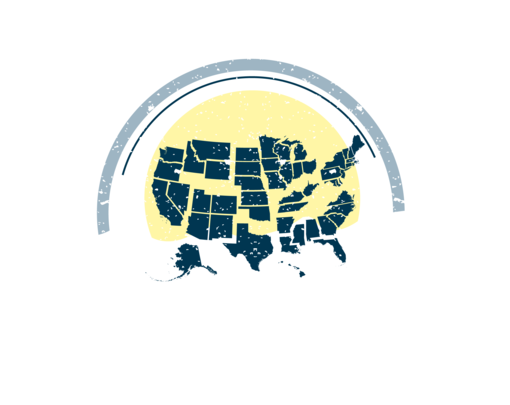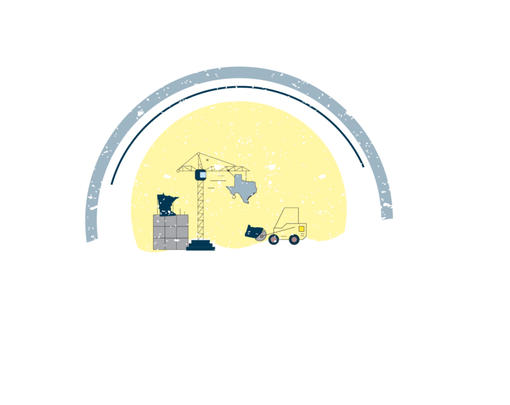How does economic change really occur locally and nationally?
Faced with the often far from equitable consequences of the current economy, many blame out of control market forces for the pressures that displace and destabilize communities. While the capacity of market forces to hollow out and destroy communities should not be understated—as amply demonstrated by cities like Detroit and Flint, more or less tragically disposable as far as global markets are concerned—simply blaming the market often obscures a fundamental truth. Stated bluntly, economic change does not simply involve autonomous self-directed business growth—the idea that we have a “free market” serves to hide the myriad ways in which public resources are used to support and direct the course of economic activity.
Probe deeply into virtually any sector of economic activity and you will find tax provisions, subsidies, trade policies, and a myriad of other public methods of support behind the successes of many businesses. That is why a vast army of lobbyists patrol the halls of Congress every day, and why huge sums are spent to elect business friendly politicians. To put it another way, there is far more de facto PLANNING in the American economy than we are commonly led to believe. From tax subsidies to zoning and land assembly to the construction of transit and other infrastructure, not to mention the vast sums of public capital invested in the basic research behind our productivity-enhancing technological inheritance, business activity in the US is supported by and channeled by all sorts of government action, ostensibly for the public good.
Recognizing—rather than obscuring—the reality that public policy is central to all economic change, the Pluralist Commonwealth uses the common tools of de facto economic planning in support of a different, democratic and ecologically sustainable community-nurturing direction. And it works to displace forms of corporate institutional power that currently dominate the system. (See EVOLUTIONARY RECONSTRUCTION AND DISPLACEMENT.)
How, specifically, can we build upon the ways cities and states already foster the local economy to create the Pluralist Commonwealth?
Public support not only for traditional businesses but for new forms of business can be an important element in a strategy of EVOLUTIONARY RECONSTRUCTION AND DISPLACEMENT. The challenge is to build upon the mechanisms now regularly used to support business as usual, and begin to deploy them to accelerate the development of new democratized institutions of ownership of the economy. Take procurement, for example. The OECD estimates that public procurement at federal, state, and local levels accounts for fully a tenth of the US GDP.1 If we can push back against attempts in various trade agreements to hamstring efforts to use the almost $1.8 trillion this represents in an intentional fashion based on different values, we can develop public purchasing preferences that prioritize the development of a range of democratized institutions at the local level—something already done in modest ways in connection with small businesses and minority and female owned businesses.2
Another important opportunity for using existing public policy to help shift the system’s underlying pattern of ownership involves the so-called “silver tsunami”—the impending wave of boomer retirees who have no clear succession plan for the large numbers of small and medium sized businesses they own. Rather than wasting public money on subsidies designed to attract and retain corporate capital with no intrinsic ties to the local community, states and municipalities should look to using existing public programs that favor the sale of companies to their employees to accelerate the conversion of appropriately scaled enterprises into worker- or community-owned firms that both move in the direction of greater democracy and (since such locally owned firms rarely move) also help stabilize the local economy.
What are some examples of shifts toward greater democracy?
In New York City, Madison, WI, and Rochester, NY, city government programs are underway that begin to establish infrastructure and resources for the development of worker cooperatives, creating jobs in historically marginalized communities. Mayor Lovely Warren in Rochester, New York is currently working with the city government to address poverty by shifting local economic policy away from traditional, inequitable and unstable models of economic development and toward development that distributes wealth and ownership broadly. The City is currently assessing the feasibility of developing employee-owned businesses to serve the needs of local anchor institutions, such as has been tested in the Evergreen Model in Cleveland, Ohio. In 2015, California passed Assembly Bill 816 to create a specific legal framework for worker cooperatives that makes it easier for them to raise funding in what is equivalent to the 8th largest economy in the world.3 The Ohio Employee Ownership Center at Kent State University, partly funded with by the state of Ohio, has helped convert 92 companies to worker ownership as older owners retire.4 The largest community land trust in the country, integrating private ownership of homes with community control of land, was developed with key support from the city government in Burlington, Vermont.5
And in Chattanooga, Tennessee, the publicly-owned utility has developed one of the fastest fiber-optic networks in the country—with this kind of 21st century “municipal socialism” proving highly effective, too, in attracting businesses to the city.6
In Cleveland, the economic development team in the mayor’s office has found creative ways to adapt many existing federal programs to support democratized businesses. Finally, the dramatic increase in the number of firms with employee stock ownership plans attests to the impact of favorable tax treatment. With the “1042 rollover,” that allows owners to defer capital gains when they sell to their employees, and other tax incentives, the number of ESOPs has increased from around 200 to approximately 7000 since 1974—a 3500% increase— that now includes more than 13 million employee-owners.7
See also:
EVOLUTIONARY RECONSTRUCTION and DISPLACEMENT, PLANNING
Further reading
Gar Alperovitz and Steve Dubb, The New Alliance: Organizing for Community Justice, Building a New Economy (Takoma Park, MD: The Democracy Collaborative, March 2013).
Marjorie Kelly and Sarah McKinley, Cities Building Community Wealth (Takoma Park, MD: The Democracy Collaborative, November 2015).
Shannon Rieger, Reducing Economic Inequality through Democratic Worker-Ownership (New York, NY: The Century Foundation, August 10, 2016).
“Smart Growth for Working Families,” Good Jobs First, 2016.
- 1OECD, Government at a Glance 2015 (Paris, France: OECD Publishing: 2015): 135-145, accessed on November 3, 2016.
- 2 “National Income and Product Accounts Gross Domestic Product: Fourth Quarter and Annual 2015 (Third Estimate)” United States Bureau of Economic Analysis, accessed November 3, 2016.
- 3Tuttle Law Group and Sustainable Economies Law Center, Capital-Raising for Worker Cooperatives: Using the AB 816 Community Investor Provision (Oakland, CA: Sustainable Economies Law Center, 2016), accessed November 3, 2016.
- 4Keane Bhatt and Steve Dubb, Educate and Empower: Tools for Building Community Wealth (Takoma Park, MD: The Democracy Collaborative, 2015), 48.
- 5 “Champlain Housing Trust,” The Democracy Collaborative, accessed November 3, 2016.
- 6Thom Hartman, “One American City Enjoys a Hyperfast Internet—Any Surprise Corporations Don’t Control It?” Alternet, Februrary 4, 2014, accessed November 3, 2016.
- 7Shannon Rieger, Reducing Economic Inequality through Democratic Worker-Ownership (New York, NY: The Century Foundation, August 10, 2016), accessed November 3, 2016.





























